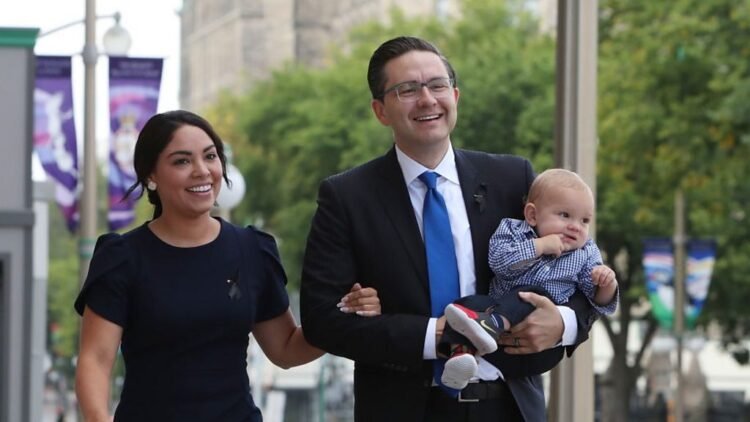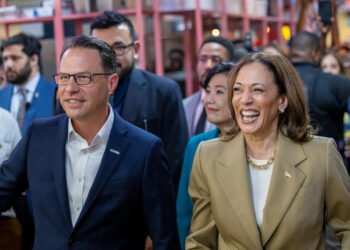Younger Canadians are more inclined to trust Conservative Leader Pierre Poilievre to represent their interests than older generations, according to the latest public issues polling conducted by Nanos Research for CTV News and The Globe and Mail.
The findings reflect a continuing trend: younger voters appear to be moving politically to the right as the next federal election approaches.
Nationally, 34% of respondents said they trusted Mark Carney and the Liberal Party the most when it comes to advocating for young Canadians. However, Poilievre and the Conservatives were a close second at 31%, according to Nik Nanos, chief data scientist at Nanos Research.
New Democratic Party (NDP) leader Jagmeet Singh came in a distant third, with just 13% saying they trusted him and his party the most on the issue.
The remaining 22% of respondents either expressed no trust in any leader (12%), trust in all leaders equally (3%), or were unsure (7%).
Clear Generational Divide
When broken down by age, the results show a striking generational divide. Among Canadians aged 18 to 34, 38% said they trusted Poilievre and the Conservatives most to support youth interests — compared to just 26.4% who chose Carney and the Liberals.
Older Canadians held a starkly different view. In the 55-and-over category, 41.4% named Carney as the most trustworthy on youth-related issues, while 25.8% sided with Poilievre.
Those aged 35 to 54 were more evenly split, with a slight edge going to Poilievre — 33.2% compared to Carney’s 31.4%.
Gender and Party-Based Trends
The survey also showed gender differences: men were more likely to trust Poilievre, while women showed a greater preference for Carney.
Among declared NDP voters, approximately 60% said they trusted Carney the most, compared to only 2.8% who said the same for Poilievre. Bloc Québécois voters were more divided — about 40% backed Carney, while 12.5% backed Poilievre.
Key Issues Divided by Age
When asked about the most important issue this election, Canadians under 55 overwhelmingly pointed to the cost of living. Meanwhile, those 55 and older were more likely to cite the U.S. trade war as their top concern.
About the Poll
The survey was conducted between April 14 and 16 through a mix of online and telephone interviews. It included responses from 1,351 randomly selected Canadian adults and carries a margin of error of ±2.7 percentage points, 19 times out of 20.
As the election season intensifies, the generational shifts in political trust may play a decisive role in shaping the outcome — and could signal longer-term changes in Canada’s political landscape.

 English
English



























































